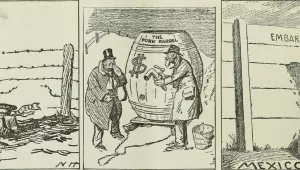India rang in the first day of 2014 by terminating a $670 million helicopter deal with British-Italian company AugustaWestland International over allegations that the firm bribed high-ranking Indian officials to obtain the lucrative contract.
The firm, a subsidiary of Italian parent company Finmeccanica, has denied any wrongdoing and is challenging the legality of the unilateral cancellation of the helicopter order. The dispute is now headed to international arbitration, setting the stage for what is likely to be an expensive and protracted legal battle between the two sides.
The controversy represents a powerful demonstration of the profound dangers India's endemic corruption poses to foreign companies seeking defence contracts with New Delhi. Although India has emerged as the world's largest arms importer, its defence deals are routinely mired in allegations of pervasive graft. India's grave corruption epidemic has afflicted industries far beyond the country's defence sector.
Beyond its impact domestically, however, India's corruption problem poses formidable challenges— and acute regulatory risks—to foreign companies operating within the country. Recent years have witnessed a surge in international enforcement of foreign anti-corruption laws in India across several different sectors.
The US Foreign Corrupt Practices Act (FCPA), the UK Anti-Bribery Act, and Canada's Corruption of Foreign Public Officials Act have targeted a broad range of foreign companies and individuals conducting business in India.
Some of the world's most prominent companies including Wal-Mart, Oracle, and Diageo have found themselves the subject of anti-corruption investigations by American enforcement agencies. Violations of the FCPA's anti-bribery and so-called "books and records" provisions in India have resulted in foreign companies paying multi-million-dollar fines in addition to other criminal penalties.
Millions of dollars more are being spent on establishing internal anti-corruption mechanisms and controls designed to ensure compliance with the FCPA in the country's high-risk environment. Signs are emerging, however, that India's own regulatory landscape is evolving in an effort to more effectively battle corruption.
In 2011, hundreds of thousands of Indian citizens took to the streets to voice their outrage toward the pernicious corruption scandals plaguing India. They demanded greater accountability, more reform, and meaningful laws to stem the tide of graft inundating the country.
The scale of the unprecedented protests, in conjunction with the founding and unlikely rise of the anti-corruption Aam Aadmi Party (AAP), prompted New Delhi to enact long-awaited legislation aimed at curbing India's ubiquitous graft. Passage of the Lokpal Bill in December 2013 established a new anti-corruption agency empowered to investigate and prosecute allegations of corruption against a broad spectrum of government officials.
Amendments to India's antiquated Companies Act that were put into effect around the same time are intended to foster greater transparency and accountability within India's burgeoning corporate sector. Although neither law directly impacts either foreign nationals or businesses in India, their enactment signals a renewed focus on combating corruption in the country.
Viewed against this, the cancellation of the Finmeccanica contract can perhaps also be interpreted as consistent with New Delhi's goals in this regard. But passage of the Lokpal Bill and amended Companies Act is unlikely to affect the pace of international enforcement of anti-corruption laws in India.
Governing trends indicate that American authorities in particular are likely to continue their rigorous enforcement of the FCPA in India. As a result, foreign companies must remain cognizant of the scores of risks they face when conducting business India and ensure that they have credible anti-corruption compliance measures in place which effectively guard against those risks.
The US Department of Justice's (DOJ) "Hallmarks of an Effective Compliance Program," provides a useful starting point toward this end. In the absence of such measures, conducting business in India's corruption-rich environment remains a perilous and expensive endeavour.
"Doing business in India’s corruption-rich environment remains a perilous endeavour." The Economic Times. February 18, 2014.




